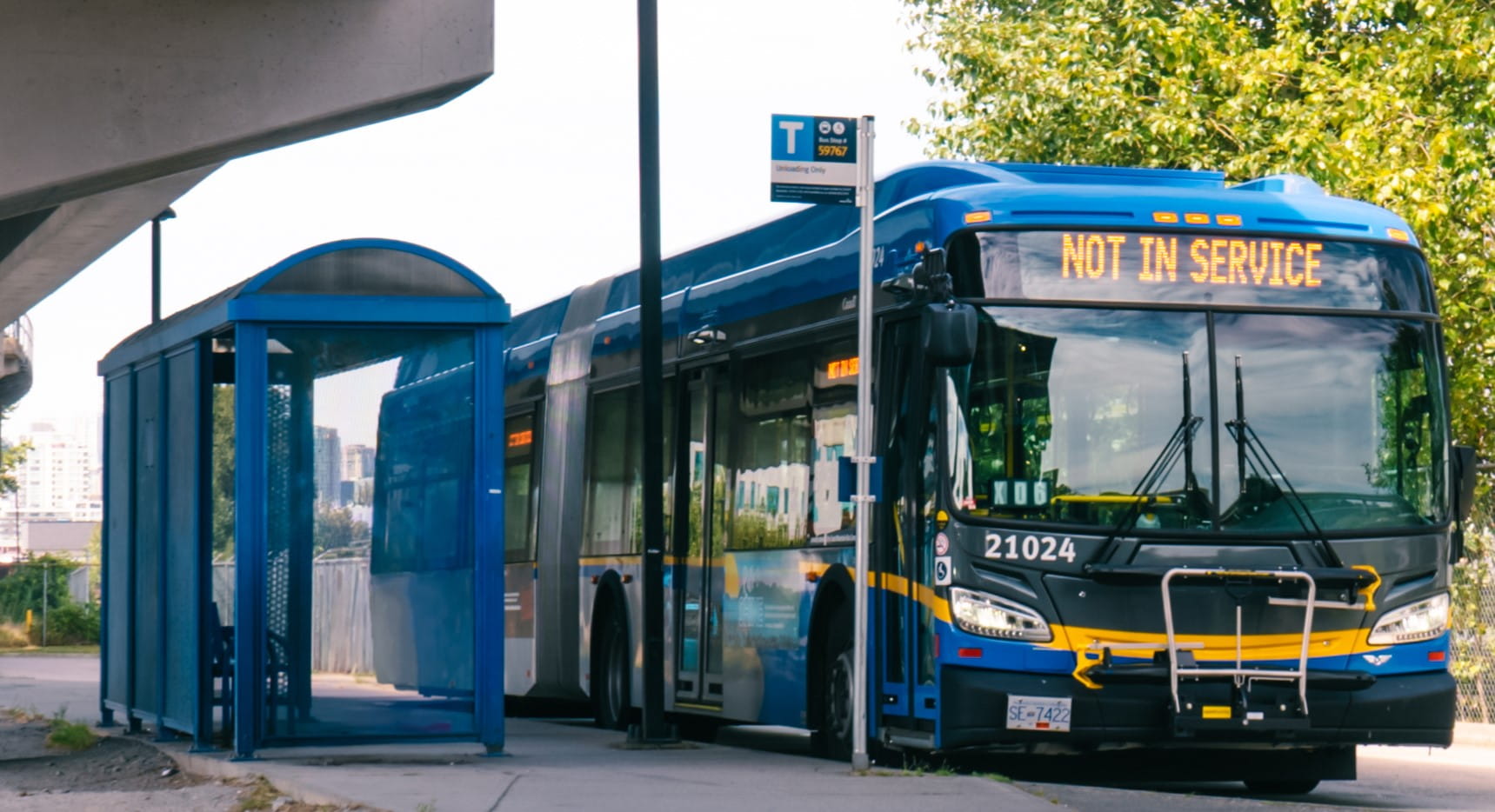Half of transit services cut without new funding model
New report details drastic potential transit service cuts to close funding gap

July 25, 2024
NEW WESTMINSTER, BC – TransLink is releasing a new report today detailing potential future transit service cuts that would be necessary at the end of 2025 if a new transit funding model is not established.
TransLink is facing a funding gap of approximately $600 million each year – a shortfall in the budget to operate current transit service levels throughout the region. Without funding, TransLink faces the prospect of cutting transit services to balance its budget. TransLink recently announced $90 million in corporate cost-efficiency and revenue measures to help reduce the funding gap.
According to the new report prepared at the request of the Mayors’ Council, the $600 million annual operating budget shortfall would result in significant cuts to all transit services, including cutting bus service in half, reducing SkyTrain and SeaBus trips by up to one-third, and potentially eliminating the West Coast Express commuter service.
“These cuts would be devastating to the region, and we’re doing everything we can to stop them from happening,” says TransLink CEO Kevin Quinn. “Unfortunately, this is a window into our reality if a solution to our outdated funding model is not implemented. We need all levels of government to come together to protect and expand transit service to meet the needs of Metro Vancouver’s growing population.”
Relief funding from the Government of BC has been pivotal in protecting service levels since the pandemic, which has resulted in TransLink being a leader in ridership recovery for major transit agencies in Canada and the United States. However, this relief funding is coming to an end in 2025, and a new solution is required to address this gap.
If a soluton is not found next year, potential cuts to transit services could include:
- Cutting bus service in half, including cancelling up to 145 bus routes and all NightBus services
- Reducing SkyTrain and SeaBus services by up to 30 per cent
- Eliminating West Coast Express
- Reducing HandyDART by 35 per cent
- Eliminating the Local Government Funding Program which invests in road maintenance and local infrastructure upgrades
These substantial reductions to transit service would significantly impact the entire Metro Vancouver region:
- More than half a million people will no longer be living within walking distance of a transit stop, disproportionately impacting those who are low-income, visible minorities, shift workers, youth, and seniors.
- There would be almost no transit services operating in Langley, White Rock, South Delta, Port Coquitlam, Maple Ridge, Pitt Meadows, and much of the North Shore.
- Tens of thousands of more cars would be added to the already-congested streets and bridges, with congestion worsening by 20%.
- Employers in health care, childcare, hospitality, construction, and major industries would face the prospect of employees who can no longer make it to work.
Once service is cut, it would take at least a decade to return transit services and ridership back to current levels, even if investments return.
"Cuts to transit services in Metro Vancouver would be unacceptable, they would result in crippling congestion, devastating environmental impacts, and would leave hundreds of thousands of people stranded,” says Chair of the Mayors’ Council Brad West. “Our region is growing at a record pace at the same time as facing an affordability crisis, both of which require more, and not less, transit. The mayors are ready to do their part, but we need the next provincial government, as well as the federal government, to work with us to ensure these cuts to transit services never happen and begin expanding our system rapidly in line with growing needs.”
While TransLink is seeking approximately $600 million in annual operating funding to avoid transit service cuts, it also requires new funding to expand transit services through the Access for Everyone plan. This plan includes doubling bus service and adding projects such as the UBC SkyTrain extension, a new rapid transit link to the North Shore, the Burnaby Mountain Gondola, and new Bus Rapid Transit routes.
TransLink is asking all levels of government to develop a sustainable funding model that would allow transit services to keep up with the region’s growing population. There are several issues with TransLink’s current funding model, including:
Decline in revenue from fuel taxes
- The regional shift toward electric and hybrid vehicles is causing a decline in fuel tax revenue.
- In 2023 alone, TransLink collected $34 million less revenue from the fuel tax than in 2022, with the losses projected to grow over the next decade.
Fare increases below inflation
-
Due to the pandemic, the 2020 fare increase was cancelled and held at levels below inflation in 2021-2024.
-
With no fare increase in 2020 and 2.3% increases in all subsequent years, TransLink’s costs have risen faster than fare prices have increased.
Increasing costs and expansion
-
Costs of construction, labour, fuel, maintenance, and new vehicles have been increasing at unprecedented rates.
-
Additional operating costs for expanding bus service and for new expansion projects like the Broadway Subway Project and Surrey–Langley SkyTrain will require significant funding once complete.
TransLink and the Mayors’ Council continue to work with all levels of government to find a new sustainable funding model to avoid any potential service cuts.
More information:
Report on Potential Transit Impacts
Report presentation at Mayors' Council
TransLink funding gap explainer video
TransLink’s efficiency measures announcement
Access for Everyone
Media contact:
TransLink Media Relations
E: media@translink.ca
